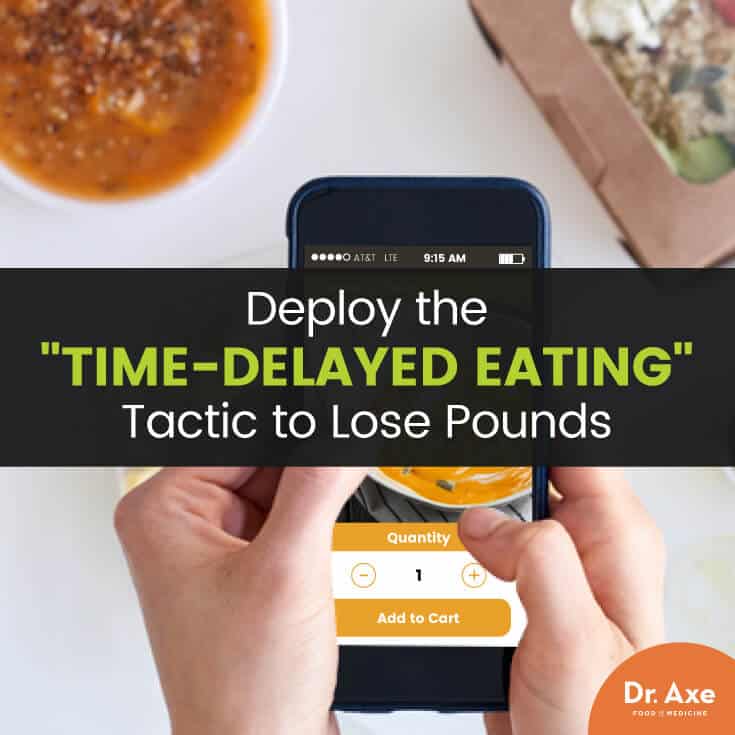This Dr. Axe content is medically reviewed or fact checked to ensure factually accurate information.
With strict editorial sourcing guidelines, we only link to academic research institutions, reputable media sites and, when research is available, medically peer-reviewed studies. Note that the numbers in parentheses (1, 2, etc.) are clickable links to these studies.
The information in our articles is NOT intended to replace a one-on-one relationship with a qualified health care professional and is not intended as medical advice.
This article is based on scientific evidence, written by experts and fact checked by our trained editorial staff. Note that the numbers in parentheses (1, 2, etc.) are clickable links to medically peer-reviewed studies.
Our team includes licensed nutritionists and dietitians, certified health education specialists, as well as certified strength and conditioning specialists, personal trainers and corrective exercise specialists. Our team aims to be not only thorough with its research, but also objective and unbiased.
The information in our articles is NOT intended to replace a one-on-one relationship with a qualified health care professional and is not intended as medical advice.
Time-Delayed Eating: Studies Show It Can Help You Lose Pounds
June 16, 2017

Are you someone who loves to plan what you’re doing days or hours in advance? While friends and family might teasingly poke fun at this habit, when it comes to eating healthily, it turns out you might have an advantage.
A series of experiments led by researchers at Carnegie Mellon University has revealed that when there’s a large gap of time between ordering food and planning on eating it, people tend to order lower-calorie foods without even realizing it — or, as the experts call it, time-delayed eating. (1) It’s another healthy tactic to put into your mindful eating arsenal.
What is Time-Delayed Eating?
Time-delayed eating is when you decide or order your food long before you plan on consuming it, and the three recent time-delayed eating studies that made up the Carnegie Mellon experiment show that when it comes to choosing food, the longer the wait, the better for your waistline.
In the first study, 394 employees of a large company were asked to place an order for their lunch that day, at least half an hour before they expected to pick it up from the onsite cafeteria. They could place an order as early as 7 a.m. and could grab their lunch anytime between 11 a.m. and 2 p.m. The researchers discovered that for every hour delay (the average was 105 minutes) between placing the order and picking up the order, participants ordered lower-calorie foods, by the tune of about 38 calories.
In the second study, also at the same company, the time between ordering and picking up lunch was set by the researchers, but the outcomes were the same. Those who placed their lunch orders further in advance chose foods that had about 30 less calories than those who picked their meals closer to lunchtime. (For those who order out for almost every meal, that could result in up to 630 fewer calories a week!.)
The third study in the experiment series assigned 200 university students to order take a survey in exchange for lunch provided right after classes ending at lunchtime. Those students who took the survey before class and chose their lunch earlier chose healthier lunches, swapping sodas for water and cookies for fruit. The ones who took the survey after class and chose their lunch right before eating it, tended to choose fattier foods, to the tune of 100 extra calories.
So why is it that selecting the food you’re going to eat well at least a few hours beforehand helps you make healthier choices? The study authors point to the fact that, when we’re forced to make an on-the-spot decision, we’re more focused on what sounds best at that moment.
Chocolate? Sure! Soda? Bring on the Coke! But when there’s a delay between when we’re ordering and when we’re eating, instant gratification isn’t the focus. Time-delayed eating allows us to make healthier choices, whether consciously or subconsciously.
Meal Plan
Not all of us have the luxury of ordering lunch daily and picking it up at a specified time like the study participants did (oh, if only!). But there are easy ways you can incorporate time-delayed eating strategies into your own lifestyle.
1. Plan meals in advance
It’s on nearly every list of advice for how to eat better and quicker ways to lose weight for good reason. Not only does meal planning help you save money, it’s also a fool-proof way of ensuring that you know exactly what you’ll be eating when.
My favorite way to meal plan is to go through the local circulars and my refrigerator on a Saturday evening — on a full stomach! I see what ingredients I might have that should be used up soon and what’s stored in the freezer. I check that against what’s on sale that week and think of my family’s favorite recipes: Pinterest boards are a lot of fun here, too!
I come up with about five dinners that I’d like to prepare for that week (leftovers can be eaten the other two nights, or I might want to try something spontaneously). I can then quickly write down the ingredients I’ll need to make each meal — that forms my shopping list. (This is also a great way to eat healthy on a budget.)
On Sunday, I’ll hit the farmers market and grocery store armed with my list. I stick close to the perimeter, where the fresh foods are, and I’m in and out in a jiffy. Pro tip: If you have a grocery store that delivers, shop online and set your delivery date for a few days later; you’re more likely to select healthier foods that way. (3)
With about an hour of prep — think chopping veggies, making sure meats are thawed and homemade salad dressings are made — we’re set for the week.
You can take this strategy further and plan out exactly what breakfasts, lunches and snacks you’ll have each day, too. Set aside your breakfast eggs or prep chia seed puddings that you can grab and go, or plan to divvy out leftovers to enjoy the next day at noon. This way, when you’re hungry, there’s no second guessing what you should be eating or hoping you make a healthy decision: you’ve already set yourself up for success. In women, meal planning leads to lower odds of being overweight or obese; in men, it reduces the chances of being obese. (4)
2. Keep your fridge stocked with healthy options
For those nights when you’re just too tired to cook or suddenly don’t want what you’d planned on eating, having a healthy option in the freezer or the ingredients for a quick and easy dinner in the fridge can be a lifesaver — and knowing it’s available means you’re less likely to throw your hands up and order takeout. If you sense it’s going to be a hectic day, “decide” early on that you’ll be having one of those meals.
3. Check out menus before going out to dinner
If you’re going out to eat, there’s no reason to wait until you’re at the restaurant to decide what you’re eating. Though you should definitely avoid these 10 chain restaurants, you can usually find healthier options at most restaurants.
Instead of trying to say “no” to that bread basket or crispy chicken, peruse the menu beforehand and decide what you’re ordering before you step foot in the restaurant — you won’t even have to look at the menu because you’ll already know what to get.
Want more tips to help you make healthy choices when dining away from home? Check out my 15 Rules for How to Eat Out Healthy.
Risks and Precautions
Time-delayed eating is a safe and effective way of making smarter choices about the foods you’re eating without depriving yourself.
One word of caution: it’s time delay, not starvation mode. If you’re getting ready for an endurance-based workout, like race training, or just had a grueling session, it’s probably best not to wait, but best to chow down on a healthy, portable option.
Final Thoughts
Time-delayed eating, or pre-planning what you’re going to eat several hours before mealtime, can help you easily make healthier choices.
Instituting your own time-delayed eating through meal prep, keeping the fridge stocked and checking out menus before eating out can help you enjoy the benefits in your own busy lifestyle.

